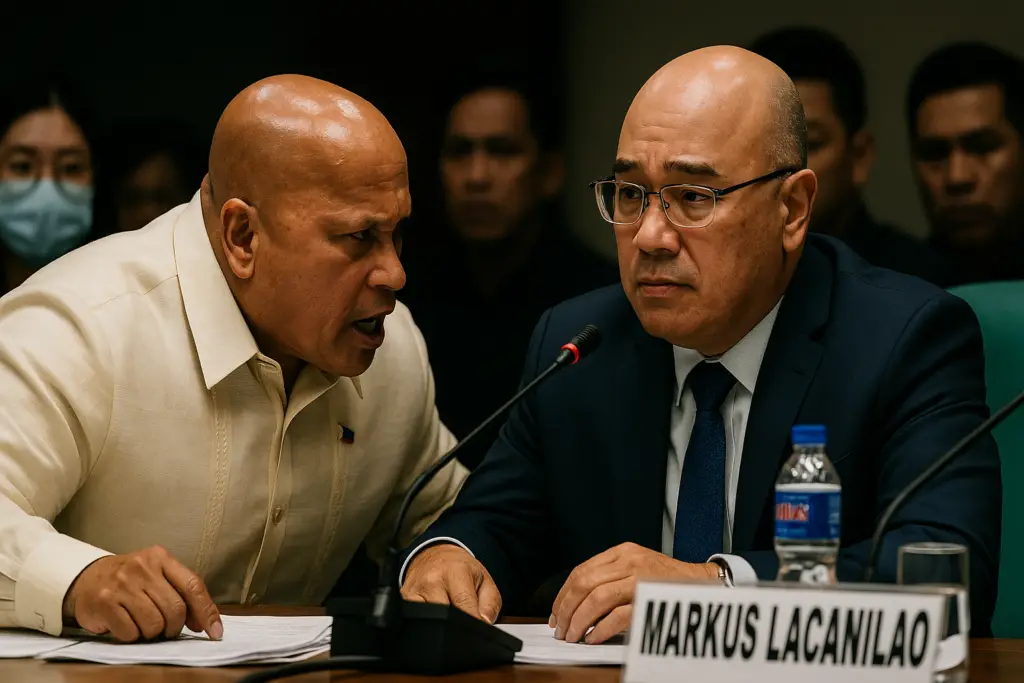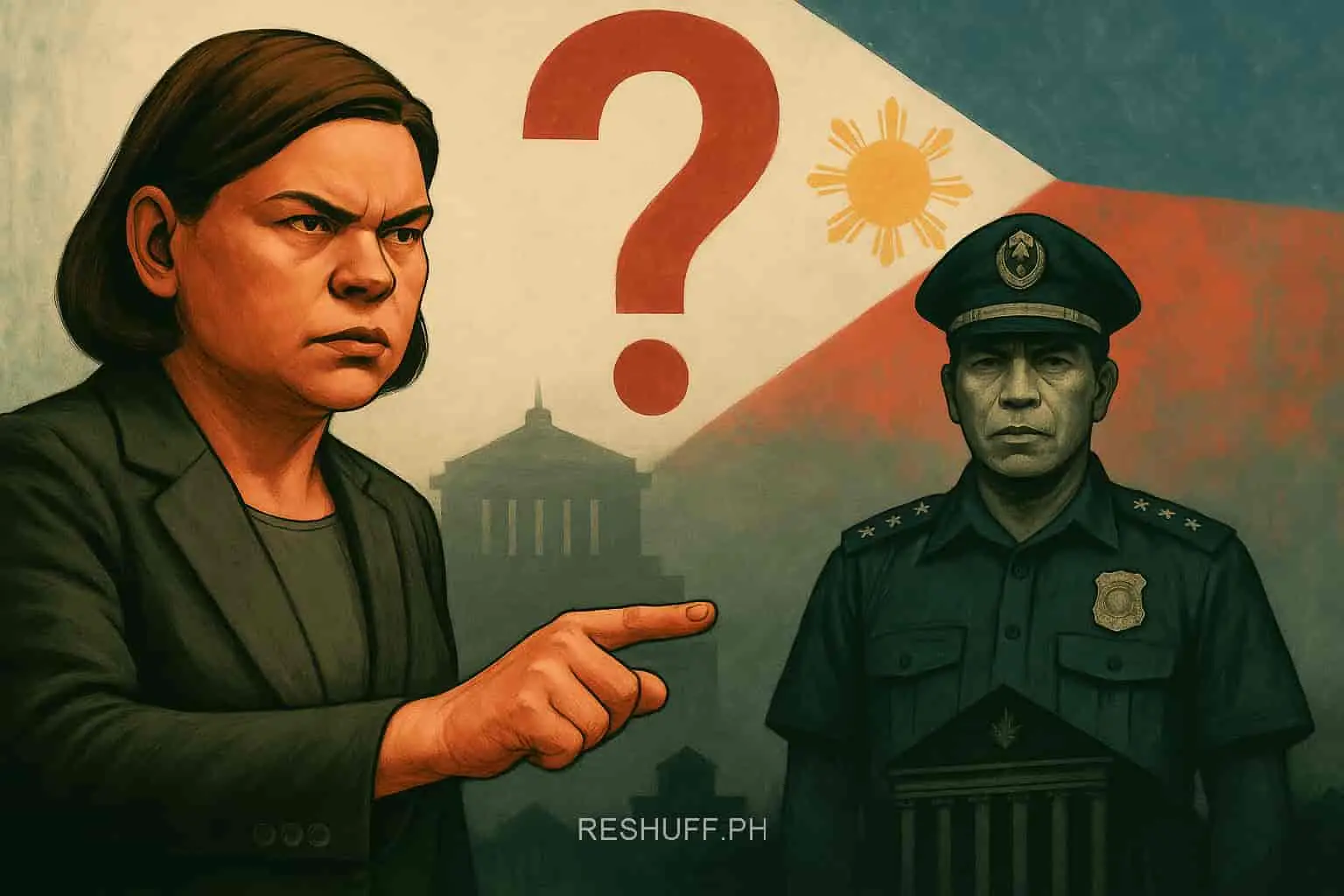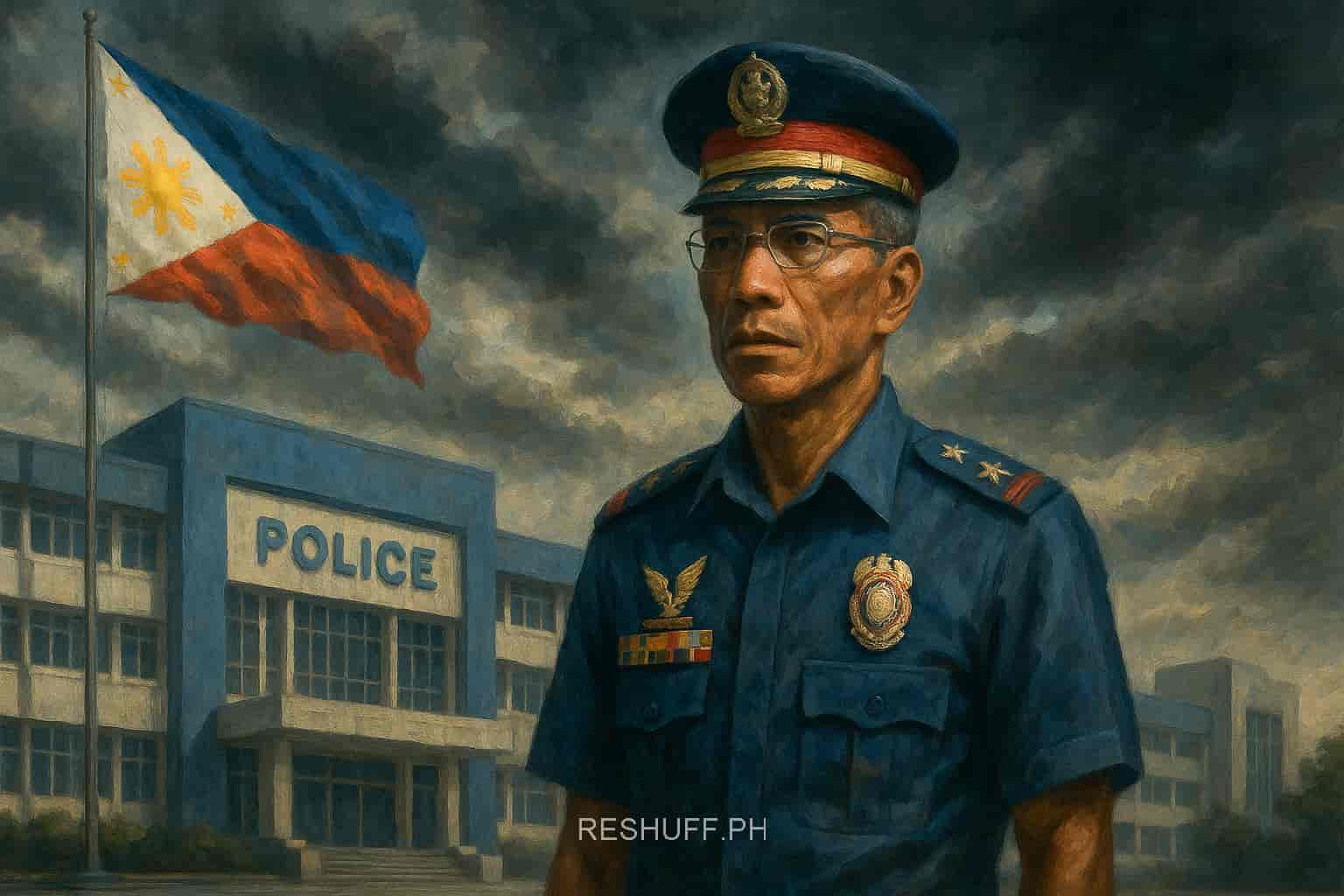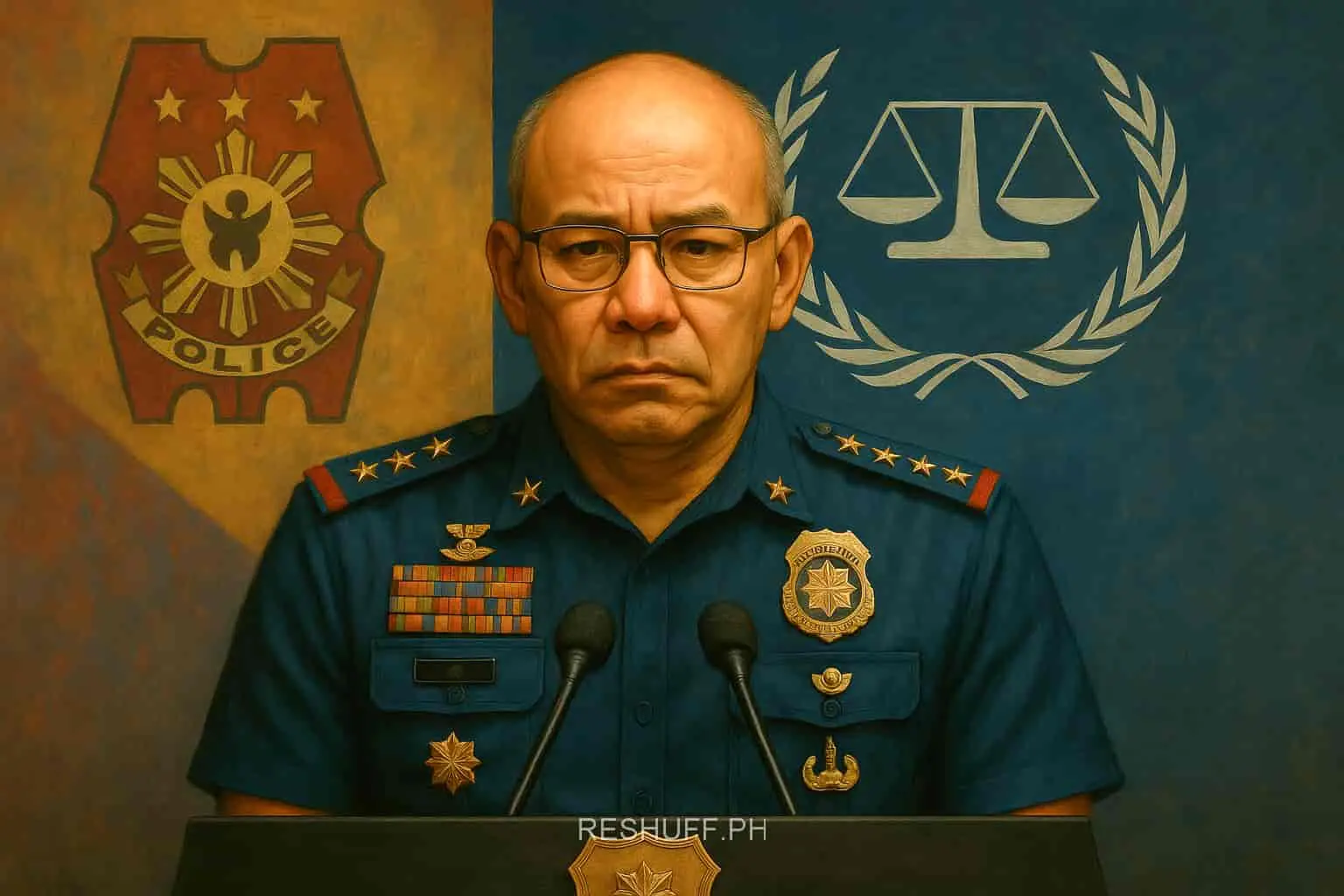Tension erupted in the Senate chambers yesterday as the first contempt citation was issued in the ongoing investigation into former President Rodrigo Duterte’s controversial arrest and transfer to the International Criminal Court (ICC). Special Envoy on Transnational Crimes Markus Lacanilao found himself caught in the center of a political firestorm as senators demanded answers about his role in what some are calling a “rushed surrender” of the former president.
Dramatic Confrontation Unfolds as Executive Officials Finally Appear
After weeks of executive officials sidestepping previous hearings behind the shield of executive privilege, the atmosphere in the Senate was electric. Executive Secretary Lucas Bersamin finally permitted select officials to attend the third hearing on Duterte’s arrest, but what began as a breakthrough in cooperation quickly descended into confrontation.
The hearing room fell silent as Senator Bato Dela Rosa, visibly agitated, leaned into his microphone and fixed his gaze on Lacanilao. “I find your answers very misleading, even from earlier,” Dela Rosa declared, his voice rising from a measured tone to one of unmistakable frustration. The words hung in the air as witnesses shifted uncomfortably in their seats.
Questionable Documents at the Heart of Controversy
What has particularly inflamed tensions is Lacanilao’s signature on several critical documents orchestrating Duterte’s arrest, including the transfer of custody papers that effectively handed the former president to international authorities. These documents, now under intense scrutiny, represent the first time in Philippine history that a former president has been surrendered to the ICC.
“The rush to surrender President Duterte raises serious questions about due process and national sovereignty,” remarked a legal expert observing the proceedings, who requested anonymity due to the sensitivity of the case. “Every Filipino should be concerned about the precedent this sets.”
Damning Inconsistencies Revealed
In perhaps the most damaging revelation during questioning, Lacanilao admitted to indicating on one document that he did not know the date, time, or location of Duterte’s appearance before a competent national judicial authority. This stunning admission sent murmurs rippling through the gallery.
When pressed for explanation, Lacanilao claimed he was awaiting certification from the Department of Justice and that documents were later updated with current details. His voice barely carried across the chamber as he attempted to justify what Senator Dela Rosa characterized as procedural irregularities.
Justice Secretary’s Intervention Falls on Deaf Ears
In a last-ditch effort to protect his subordinate, Justice Secretary Boying Remulla stepped in, appealing directly to Dela Rosa to reconsider the contempt motion. The Justice Secretary’s intervention created a momentary hush as observers waited to see if this high-level appeal would sway the determined senator.
That hope was quickly extinguished when Senator Imee Marcos, chairing the proceedings with steely resolve, brought down her gavel and approved the contempt motion without hesitation. The crack of the gavel echoed like a thunderclap, sealing Lacanilao’s fate as the first official held in contempt during this politically charged investigation.
Implications for Philippine Sovereignty and International Relations
This development comes amid growing concerns about the implications of Duterte’s transfer to the ICC. Political analysts suggest this unprecedented move could fundamentally alter the relationship between the Philippines and international judicial bodies.
“What we’re witnessing is not just about one former president or one special envoy,” noted Dr. Elena Santos, Professor of International Relations at the University of the Philippines. “This is about whether Philippine officials can unilaterally decide to hand over a former head of state to an international court that the country has formally withdrawn from.”
Conclusion
As Lacanilao faces the consequences of the contempt citation, the broader investigation continues to expose deep divisions within the Philippine government regarding Duterte’s arrest. With executive officials now participating in hearings but clearly at odds with the Senate panel, observers anticipate even more explosive revelations in the days ahead.
The question remains whether this contempt citation is merely the opening salvo in what promises to be a protracted battle over accountability, sovereignty, and the legacy of the Duterte administration.




